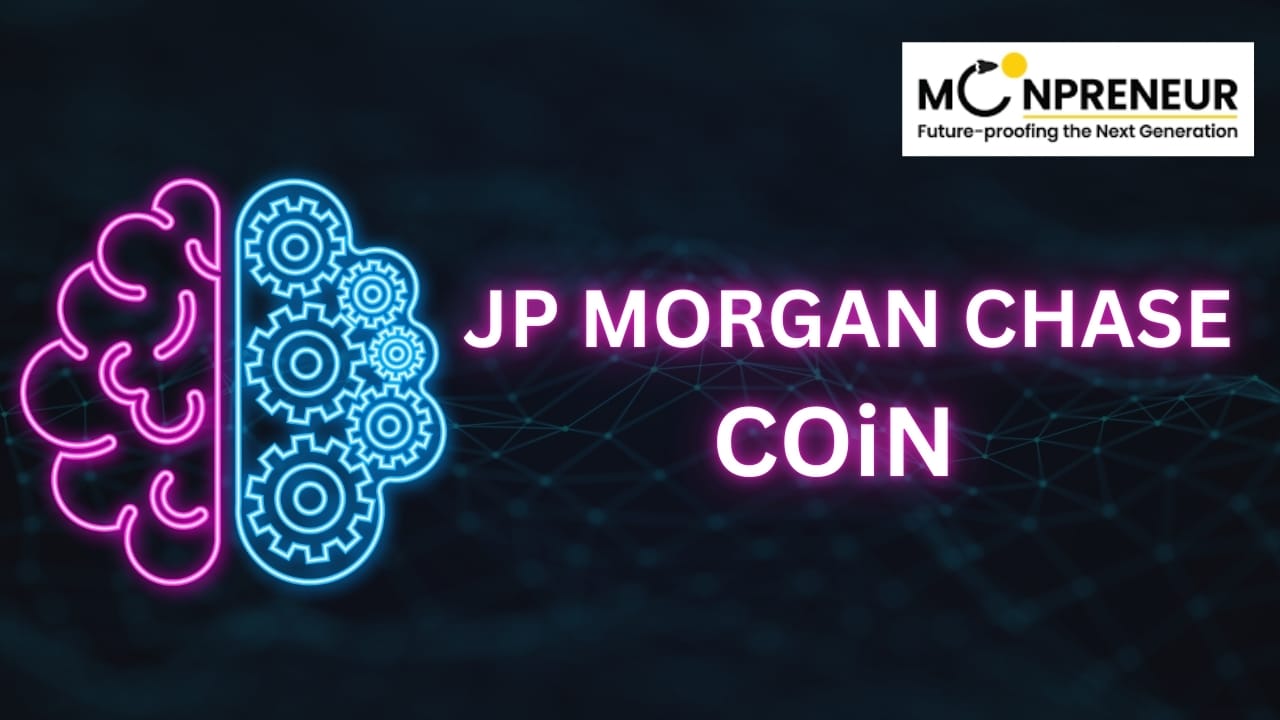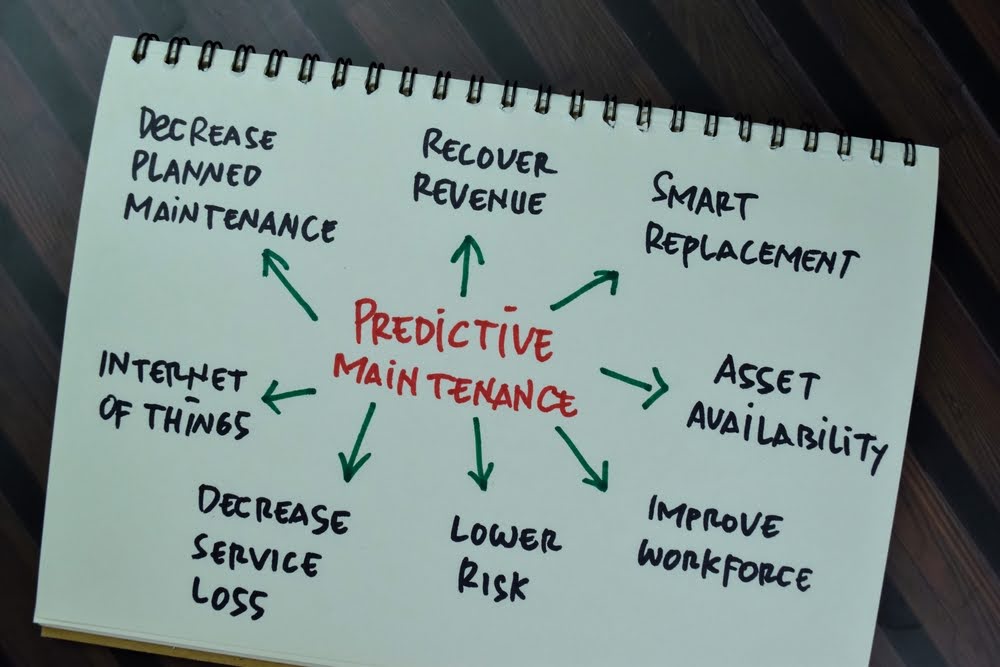Update: This article was last updated on 16th January 2026 to reflect the accuracy and up-to-date information on the page.
The AI revolution is not just a buzzword, but a transformative force reshaping industries worldwide, from healthcare to retail, finance, and logistics. Businesses are harnessing the power of artificial intelligence (AI) to stay ahead in the competitive race, cut costs, and foster innovation. Yet, the integration of AI into operations is no walk in the park, requiring a deep understanding of the company’s goals and the technology at play. This is where the pivotal role of an AI strategist comes into play.
Recommended reading: What is Prompt Tuning? A Deep Dive into AI Optimization
Table of Content
- 1. Introduction
- 2. The Role of an AI Strategist
- 3. Key Elements of a Successful AI Strategy
- 4. Challenges in AI Adoption and Solutions
- 5. Industry-Specific AI Strategy Approaches
- 6. Measuring the ROI of AI
- 7. Building a Cross-Functional AI Team
- 8. Real-Time AI Monitoring Tools
- 9. Future AI Trends Shaping Business
- 10. Real-World Case Studies: Small and Large Businesses
- 11. Conclusion

Recommended Reading: Top Machine Learning Careers
An AI strategist is not just a role, but a beacon of hope for businesses. They ensure that AI initiatives are not just aligned with a company’s long-term vision and immediate business objectives, but also with a brighter future. In this blog, we’ll delve into the essential role of AI strategists, the key elements of a successful AI strategy, and real-world case studies that demonstrate how businesses—both large and small—are reaping the benefits of AI strategy, paving the way for a more innovative and efficient future.
An AI strategist is not just a role, but a beacon of hope for businesses. They ensure that AI initiatives are not just aligned with a company’s long-term vision and immediate business objectives, but also with a brighter future. In this blog, we’ll delve into the essential role of AI strategists, the key elements of a successful AI strategy, and real-world case studies that demonstrate how businesses—both large and small—are reaping the benefits of AI strategy, paving the way for a more innovative and efficient future.
Recommended Reading: Unlocking the Potential of Generative AI for the Future Workforce
An AI strategist is a leader who focuses on creating and implementing a company’s AI strategy. Their main job is to make sure that the strategy not only fits the company’s technical abilities but also aligns with its business goals. Let’s briefly discuss their roles.
1. Defining AI Strategy: AI strategists develop AI roadmaps that align with the company’s vision, pinpointing the areas where AI can deliver the greatest value.
2. Key Skills: AI strategist combine their understanding of AI technology with business insights, such as market trends, customer behavior, and competitive landscape. It allows them to lead diverse teams effectively in successfully implementing AI solutions.
3. Cross-Department Collaboration: AI strategists are not lone wolves, but team players who collaborate across departments. They work hand in hand with marketing, sales, operations, and IT teams to ensure that AI is seamlessly integrated into every facet of the business. This collaborative approach is key to the successful implementation of AI solutions, making everyone feel part of the AI journey.
Recommended Reading: AI Agents: Turning Clicks, Carts, and Conversions into a Trillion-Dollar Empire
A successful AI strategy is essential for organizations looking to leverage artificial intelligence effectively. Key elements of a strong AI strategy include setting clear goals, establishing data governance, building a robust technology infrastructure, and acquiring skilled talent. By concentrating on these components, organizations can optimize their AI initiatives and ensure they align with their overall business objectives.
Identifying Business Problems: When implementing AI, it’s not just about the technology, but a thoughtful and deliberate focus on specific business challenges. Whether the goal is to enhance efficiency, boost customer engagement, or forecast demand, AI should be strategically directed at solving these particular issues, making the audience feel thoughtful and deliberate in their approach.
Recommended Reading: Shadow AI: Balancing Innovation and Security in the Age of AI

- Data Management: AI’s reliance on data is a key aspect that provides a sense of security and control. Its effectiveness hinges on having clean and well-organized information. AI strategists play a key role in managing this data by establishing proper governance and creating data pipelines that effectively support AI models, ensuring a secure and controlled environment for AI implementation.
- Ethical AI: Implementing AI responsibly is vital. AI strategists ensure that the solutions are not only practical but also transparent and accountable, adhering to ethical guidelines and regulatory standards. This focus on ethics helps maintain trust and integrity in AI applications. For instance, ensuring that AI models are not biased and that they respect user privacy are key ethical practices in AI implementation.
AI adoption comes with significant challenges, which AI strategists are equipped to address:
| Challenges | Solutions |
|---|---|
| Lack of AI Talent | AI strategists act as talent scouts, addressing the shortage of AI expertise. They spot internal potential and recruit specialists, helping existing teams build essential AI skills. |
| Implementation Complexity | AI strategists simplify complex tasks by designing scalable AI solutions that integrate smoothly with existing systems. |
| Cultural Resistance | AI strategists drive cultural change by demonstrating the value of AI through quick wins, such as improving customer service response times or increasing operational efficiency, and fostering innovation across the organization. |
In today’s fast-changing tech world, having an AI strategy that fits your industry is crucial for organizations looking to make the most of artificial intelligence. This section delves into customized approaches that tackle the specific challenges and opportunities each sector faces. Through case studies and best practices, we’ll show how these focused AI strategies can boost innovation, improve efficiency, and empower companies to stay ahead of the competition.
1. Retail
In retail, AI enhances customer personalization by analyzing shopping behaviors, improves demand forecasting for better inventory management, and optimizes supply chain processes, leading to increased efficiency and customer satisfaction.
Amazon’s AI-Driven Personalization

Challenge: Amazon wanted to improve customer experience and foster loyalty through personalized recommendations. They recognized that offering tailored shopping experiences is crucial for driving sales.
AI Solution: To achieve this, Amazon uses advanced machine learning algorithms that analyze customer behavior, such as purchase history, browsing patterns, and product reviews. This analysis enables Amazon to suggest products that are uniquely suited to each customer.
Results: The impact of this AI-driven personalization has been significant, with estimates suggesting that around 35% of Amazon’s revenue comes from its recommendation engine. This approach not only enhances the shopping experience for customers but also boosts conversion rates, leading to increased satisfaction and loyalty.
Amazon’s use of AI for personalized recommendations is a testament to the transformative power of technology in the e-commerce landscape. By effectively utilizing customer data, Amazon creates customized shopping experiences that not only drive sales but also deepen customer engagement, inspiring us with the potential of AI in our industries.
2. Healthcare
In healthcare, AI is transforming diagnostics, enhancing patient care, and accelerating drug discovery. Crucially, AI strategists play a pivotal role in ensuring that these innovations adhere to strict healthcare regulations and standards, making them invaluable contributors to the field.
Google DeepMind’s AI for Eye Disease Detection

Recomended Reading: Generative AI in Healthcare: Bridging the Gap Between Data and Diagnosis
Challenge: Early detection of eye diseases is not just important, it’s critical for effective treatment. However, traditional methods can be time-consuming and require expert knowledge.
AI Solution: Google DeepMind developed an AI system capable of analyzing 3D retinal scans to detect conditions like diabetic retinopathy and age-related macular degeneration. The AI uses deep learning techniques to identify abnormalities.
Results: In clinical trials, DeepMind’s AI demonstrated an accuracy rate comparable to human experts, achieving 94% accuracy in detecting certain eye diseases. Also, the collaboration has led to faster diagnoses and improved patient outcomes, streamlining the workflow for healthcare providers.
3. Finance
AI is a strategic tool in the hands of AI strategists, widely used for fraud detection, risk management, and personalized financial services. These professionals ensure that AI solutions adhere to strict compliance standards in finance, playing a crucial role in the industry’s evolution.
JP Morgan’s COiN for Document Review

Recommended Reading: Shadow AI: Balancing Innovation and Security in the Age of AI
Challenge: The bank faced challenges in reviewing contracts and legal documents, which involved significant manual labor and time consumption.
AI Solution: JP Morgan’s document review process was revolutionized with the development of COiN (Contract Intelligence), an AI tool that uses natural language processing to analyze legal documents and extract important data points.
- Results: The implementation of COiN led to a remarkable reduction in the time taken to review documents, from 360,000 hours per year to just a few seconds for specific tasks. This not only significantly increased efficiency but also bolstered compliance and risk management by ensuring accurate processing of all relevant information.
4. Manufacturing
In manufacturing, AI plays a vital role in predictive maintenance and quality control. By anticipating equipment failures and ensuring consistent product quality, it minimizes downtime and streamlines operations for greater efficiency.
General Electric’s Predictive Maintenance

Recommended Reading: AI’s Negative and Positive Impact
Challenge: GE wanted to minimize equipment downtime and maintenance costs across its manufacturing and service operations.
AI Solution: GE took a proactive approach to maintenance with the implementation of a predictive maintenance solution powered by the Industrial Internet of Things (IIoT) and machine learning. The system collects data from machinery sensors to predict when maintenance is needed before a failure occurs.
Results: By using AI for predictive maintenance, GE reported a 10% reduction in maintenance costs and a 25% reduction in downtime. The predictive capabilities enabled GE to enhance operational efficiency and extend the lifespan of its equipment.
One of the most critical aspects of AI implementation is demonstrating return on investment (ROI). AI strategists ensure the success of AI initiatives is measured effectively:
- Financial ROI: AI solutions have the potential to increase revenue, lower costs, or even achieve both. To reap these benefits, AI strategists focus on establishing clear financial key performance indicators (KPIs) from the beginning.
- Operational Efficiency: By automating processes, AI significantly boosts productivity and shortens cycle times, leading to more efficient operations overall. This means that businesses can accomplish more in less time.
- Customer Experience: AI also plays a crucial role in enhancing customer satisfaction. Its impact can be gauged using metrics such as the Net Promoter Score (NPS) and customer churn rates, helping organizations understand how well they are meeting customer needs.
A successful AI strategy depends on teamwork across different departments. AI strategists ensure that the right people are involved to carry out AI projects effectively.
- Data Scientists and Machine Learning Engineers: Data scientists and machine learning engineers play a vital role in creating and managing AI models. Furthermore, they analyze data, refine algorithms, and make sure the models work effectively in real-world situations.
- Business Analysts: Business analysts act as a key connection between the technical team and business stakeholders. They interpret what the business needs, turn those needs into precise AI requirements, and ensure that the solutions align with the company’s goals.
- IT and Infrastructure Teams: IT and infrastructure teams provide essential technological support for AI projects. They set up and maintain the necessary cloud solutions or on-premise systems, ensuring that the AI systems operate smoothly and efficiently.
Real-time monitoring tools are vital for keeping AI systems running smoothly. They provide ongoing insights into how the systems are performing, allowing businesses to spot and address any issues that arise quickly.
Real-time Analytics Platforms: Platforms like Google Analytics and Tableau help businesses track the performance of their AI systems in real time. Hence, these tools offer valuable insights into user behavior, enabling companies to make informed decisions and improve their AI effectiveness

AI Monitoring Solutions: Solutions like MLflow and Seldon are specifically designed to keep an eye on AI models in production. They help companies ensure that their models are accurate and effective over time, reducing risks and maintaining consistent performance.
AI strategists need to keep an eye on emerging trends to stay ahead in a fast-evolving landscape:
- Generative AI: Generative AI models are revolutionizing creative fields by producing high-quality text, images, and code. This innovation enhances marketing strategies and content creation, enabling businesses to engage audiences more effectively and efficiently.
- Explainable AI (XAI): As AI systems become a key part of decision-making, businesses need to use explainable AI. This transparency builds trust among stakeholders and helps ensure compliance with regulations, promoting the ethical use of AI.
- AI in Edge Computing: Using AI at the edge enables real-time data processing right where it’s generated. This is crucial in industries like manufacturing and logistics, where quick decisions can make all the difference.

Case Study 1: Small Business – Stitch Fix (E-Commerce)
Stitch Fix, an online personal styling service, leverages artificial intelligence to elevate customer experiences and streamline operations. By curating personalized clothing selections, the company addresses scalability and efficiency challenges in the fashion industry.
- AI Implementation: Stitch Fix uses AI to recommend clothing items based on users’ personal preferences, body types, and past purchases. While human stylists made final selections, the AI recommendations helped narrow down choices, improving the accuracy of selections.
- Personalization: AI algorithms analyze vast datasets, including customer feedback and product details, to predict the best-fitting clothing for each individual, creating tailored shopping experiences.
Outcomes:
1. Improved Customer Satisfaction: By providing personalized selections that match individual styles, customers feel more valued and satisfied with their shopping experience.
2. Better Retention Rates: When customers receive personalized offerings, they’re more likely to develop loyalty to the brand and keep coming back.
3. Lower Operational Costs: Using AI to optimize processes helps stylists work more efficiently, which can reduce overall operational costs.
4. Unique Selling Point: Stitch Fix has established itself as a leader in the personalized fashion market, giving it a competitive edge over other retailers.
Case Study 2: Large Enterprise – General Electric (GE) (Manufacturing)
General Electric (GE) is one of the leading companies that are adopting AI for industrial operations. Facing frequent equipment failures and high maintenance costs, GE needed an AI strategy to improve operational efficiency and predict equipment breakdowns in its power plants.
- Predictive Maintenance: GE used AI to implement predictive maintenance solutions in its industrial machines, including turbines and generators. AI algorithms monitored real-time machine data, such as temperature, pressure, and vibrations, to predict failures before they occurred.
- AI-Driven Insights: Using the data gathered from thousands of sensors, AI models provided actionable insights on when equipment required maintenance, optimizing operations and reducing unplanned downtime.
Outcomes:
1. Cost Reduction: GE reduced its maintenance costs by up to 30%, saving millions of dollars each year.
2. Downtime Reduction: By implementing predictive models, GE was able to decrease machine downtime by 20%. This improvement ensures that machines operate more reliably, minimizing disruptions in production.
3. Increased Productivity: The reduction in downtime resulted in a significant boost in productivity and efficiency across GE’s global operations.
4. Industry Leadership: These AI-driven innovations solidified GE’s position as a leader in industrial AI applications.
These case studies demonstrate how AI strategists have enabled businesses of all sizes to enhance customer satisfaction, boost operational efficiency, and achieve cost savings. They underscore the value of a well-executed AI strategy and its transformative impact of AI across various industries.
Conclusion
AI has become essential for businesses that want to stay competitive in today’s market. An AI strategist is key to making sure that AI initiatives truly deliver value by enhancing operational efficiency, improving customer experience, and increasing revenue. Numerous real-world examples demonstrate that a well-designed AI strategy led by an experienced AI strategist can yield significant results.
As companies explore the AI landscape, the emphasis has moved from simply deciding whether to adopt AI to figuring out how to implement it effectively. In this journey, an AI strategist plays a vital role in guiding the process and ensuring that AI is implemented in a way that produces tangible business outcomes.
Moonpreneur is on a mission to disrupt traditional education and future-proof the next generation with holistic learning solutions. Its Innovator Program is building tomorrow’s workforce by training students in AI/ML, Robotics, Coding, IoT, and Apps, enabling entrepreneurship through experiential learning.


























I find the role of an AI Strategist intriguing, especially as my son explores AI and tech through game development workshops. It’s inspiring to see how AI can be woven into a business strategy, which is a level beyond just technical expertise. Seeing him grow in these skills makes me think of future paths like this one that combine tech knowledge with impactful decision-making.
It would be even more helpful if you add more about the starting steps toward becoming an AI Strategist. Highlighting a few entry-level roles or experiences that help build both AI and strategic skills could make this career path feel more accessible to those just starting out.